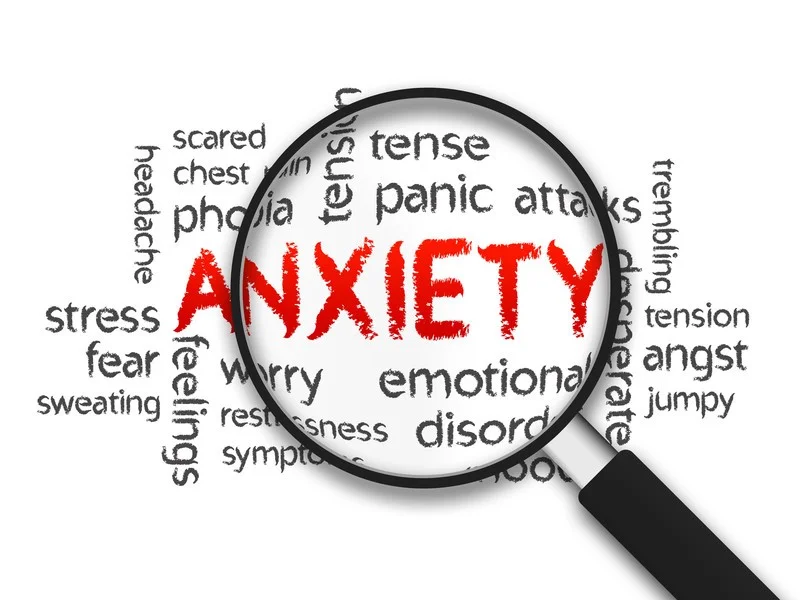Lessons of Anxiety Mode
Last week, I started playing Dragon Quest XI, a new game in a series I’ve loved for years. I started a new save file, only to see options for several challenges to add to the difficulty of the game. Most of them involved not being able to use items, or other gameplay-related things, but one of them was far from anything I expected.
“Shypox,” as the challenge is called, was described this way: “Uncontrollable embarrassment will plague you on every step of your adventure. There’s no telling when this crippling affliction might flare up next!”
To me, this sounded like the game had an anxiety mode specifically focused around social anxiety. Even though I don’t personally experience social anxiety, I was curious to see what playing this mode would be like and if the representation was accurate from what I know as a friend to several people who live with it.
It didn’t take me long to realize the two main aspects of this new mode of gameplay:
First, every time the player character tries to speak with another character, from a farmer to a king, there is a chance that you will be unable to get the words out. The game specifies a reason for each time, a specific negative thought that got in the way of saying hello. It could be anything from wondering where you’re supposed to look during a conversation to remembering an embarrassing incident that distracts you. In each instance, you shy away from the other person, and a small depressing jingle plays. You then have to attempt to talk to the person again, at which point it could work or a different negative thought could come.
Second, these thoughts aren’t limited to conversations - they’ll pop up in battle, sometimes in the most important moments, and make it so that the player character can’t do anything that turn. It didn’t take me long to lose a major battle thanks to this, and I soon realized that playing in this mode would require an entirely different strategy than “normal” mode.
Although I’ve seen mental health conditions portrayed in video games before, I’ve never seen a game portray it so pervasively. The “shypox” affects everything about gameplay, from the life-changing moments for the character to the everyday interactions with passersby. It’s the only game I’ve encountered that doesn’t “turn off” the anxiety at key moments so the character can do what needs to be done - sometimes, you will fail at a challenge because of anxiety, even if it’s the worst timing. That makes this feels the most real out of the games I’ve played that attempt to give the player an experience of anxiety.
As a player of real life’s Anxiety Mode for over a quarter of a century, here are some lessons from the game that also work quite well in real life:
Some things that may seem easy to you are not easy for other people. Everyone’s anxiety manifests differently, and it’s important to consider that when someone seems hesitant to do something you consider easy.
Each individual incident of anxiety is different. Just because someone has worked through one thought or one stressful idea doesn’t mean that will help with any others. Not all are of equal strength, either - some thoughts are easier to dispel than others, and the ease of dispelling them may not make much sense.
Patience, and the willingness to let the person try again at a task they’ve failed, is huge, and can lead to great success.
Negative thoughts can and will come at the worst times, and people living with anxiety have to be resourceful and come up with other ways to beat the “boss battle” or current life circumstance.
These thoughts also don’t make sense all the time - they can be really inappropriate and come at the worst moments. If someone appears to be zoning out, consider that they might be dealing with thoughts like this, and deal with them tolerantly.
In real life, there won’t be indicative music that plays when someone is anxious. If you think someone around you may be experiencing an anxious episode, consider reaching out to see if they want help. This might take the form of actively helping them with something or distracting others around them so they don’t feel like the center of attention during a tough time.
People who fail to do a specific task once, or even more than once, are not failures as people. Trying again is key to living with anxiety, and supporting people who may need multiple tries at something can be really helpful.
And, most importantly, even if anxiety is in your programming, you can still reach incredible heights. Just ask the protagonist of my game, who I’ve named Elian (another member of the Ellie squad) - anyone can be a hero!
Ellie, a writer new to the Chicago area, was diagnosed with OCD at age 3. She hopes to educate others about her condition and end the stigma against mental illness.


